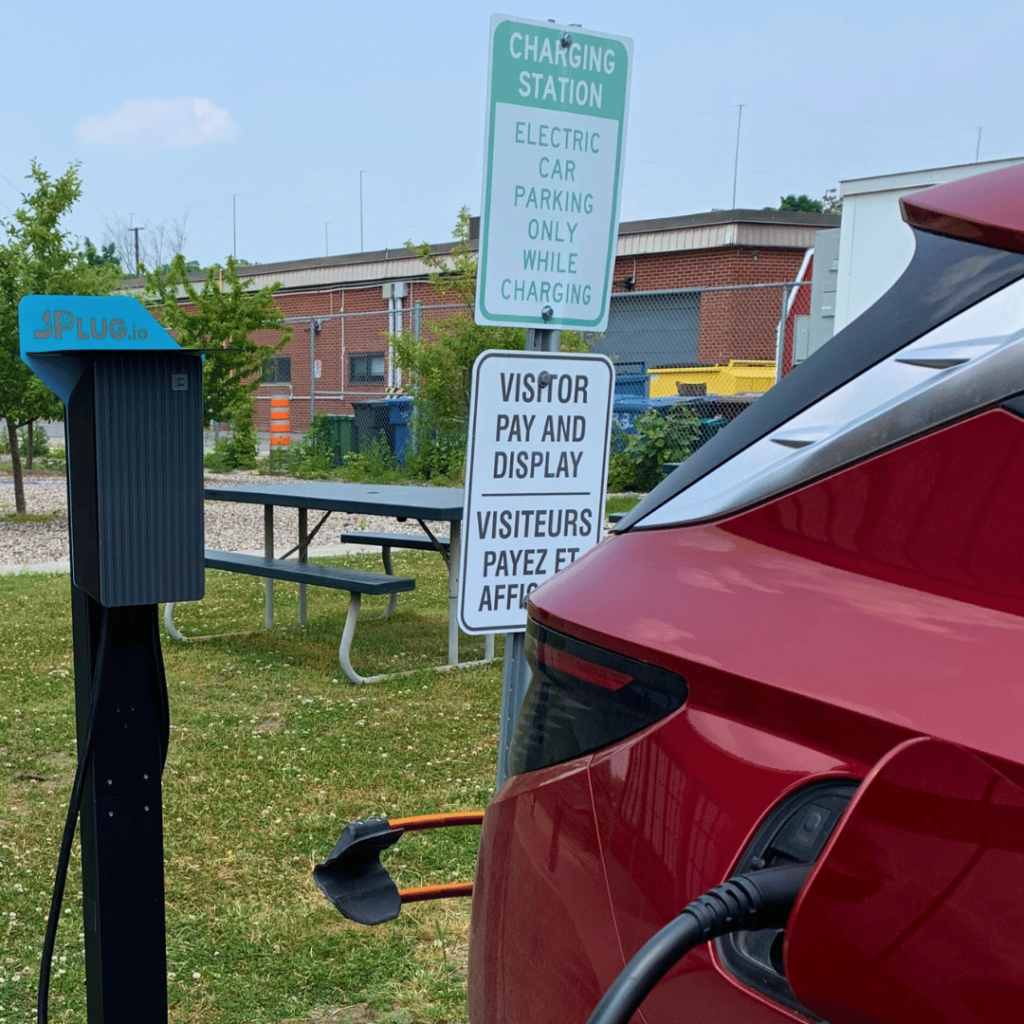
Electric cars are becoming popular and condominiums buildings gather most of the population in cities. For this reason, provinces and municipalities have been taking steps to make sure EV drivers have a place to charge.
On 2017, the Ontario building code required that at least 20% of the parking spaces at residential buildings to be EV Charging ready. Sadly this amendment was repealed.
Cities like Toronto developed a strategy to incorporate electric vehicle charging to a 100% in residential buildings.
Toronto’s Green Vehicle Strategy
The City of Toronto approved its first Electric Vehicle (EV) Strategy on January 29, 2020. The goal was to encourage and support residents, commuters, and businesses to transition from gas-powered vehicles to electric vehicles. The strategy primarily focuses on passenger vehicles and includes ten actions that the city can take to promote EV adoption.
The key points affecting condominiums and new residential building developments are:
Toronto Green Standards (TGS) for New Developments
- The TGS are the City’s guidelines for sustainable design and construction of new buildings. They play a crucial role in shaping the development landscape in Toronto to be more environmentally friendly.
- Tier 1 performance measures of TGS are mandatory for new developments and include requirements for charging units in specific percentages of parking spaces.
- In mid to high-rise and commercial buildings, 20% of parking spaces must have charging units installed. This ensures a portion of residents and visitors have access to electric vehicle (EV) charging facilities.
- City-owned facilities are required to have charging units in 25% of their parking spaces, promoting EV adoption in the municipal fleet.
- Additionally, all parking spaces in new developments must be designed to be EV capable. This means they should have the necessary electrical infrastructure in place to facilitate future installation of charging units.
Expanding TGS Support
- Toronto aims to enhance TGS support to further encourage electric vehicle adoption and reduce barriers for developers.
- One proposed update is to mandate 100% EV readiness for parking spaces. This means that every parking space in new developments would be required to have a complete electrical circuit terminating in an electrical outlet for EV charging. Even if charging units are not installed immediately.
- This update simplifies the process for future charging infrastructure installation and reduces costs since the electrical infrastructure would already be in place.
- Low-rise residential buildings (4 storeys or less) are also considered for inclusion in the mandate for EV ready charging infrastructure in parking spaces.
- To support developers, Toronto plans to provide educational resources, technical options, guides, and case studies.
- By raising awareness of load management technologies, developers can meet the 100% EV ready requirement without significant cost increases.
Supporting Developers
- The City of Toronto recognizes that supporting developers is crucial in achieving its sustainability goals and transitioning to a more EV-friendly urban environment.
- Toronto aims to foster an environment where sustainable practices become standard in new developments. The plans is to provide developers with educational resources on EV charging infrastructure.
- This support includes educating developers on various technical options available for EV charging.
- Demonstrating how load management technologies can enable cost-effective EV readiness, and showcasing successful case studies that demonstrate the benefits of implementing EV charging infrastructure in their projects.



